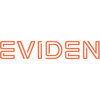

Bnp Paribas Securities




10+ Bnp Paribas Securities Associate Interview Questions and Answers
Q1. What are fundamental rules of accounting
Fundamental rules of accounting include the principles of consistency, conservatism, materiality, and others.
The principle of consistency states that once an accounting method is chosen, it should be consistently applied.
The principle of conservatism suggests that when in doubt, accountants should choose the option that is least likely to overstate assets and income.
The principle of materiality states that only significant items need to be reported in financial statements.
Oth...read more

Q2. What is a structure of Mutual funds
Mutual funds are investment vehicles that pool money from multiple investors to invest in a diversified portfolio of securities.
Mutual funds are managed by professional fund managers who make investment decisions on behalf of the investors.
Investors can buy shares of mutual funds, which represent their ownership in the fund's portfolio.
Mutual funds can invest in stocks, bonds, money market instruments, or a combination of these asset classes.
There are different types of mutua...read more

Q3. What is mutual fund and types
A mutual fund is a type of investment vehicle that pools money from multiple investors to invest in stocks, bonds, or other assets.
Mutual funds are managed by professional fund managers
Types of mutual funds include equity funds, debt funds, balanced funds, index funds, and sectoral funds
Equity funds invest primarily in stocks, while debt funds invest in fixed-income securities
Balanced funds invest in a mix of stocks and bonds, while index funds track a specific market index
Se...read more

Q4. What is corporate action
Corporate action refers to events initiated by a publicly traded company that can affect its shareholders and securities.
Corporate actions can include dividends, stock splits, mergers, acquisitions, spin-offs, and rights issues.
These actions can impact the value of the company's stock and the rights of shareholders.
Shareholders may need to take action or make decisions based on corporate actions announced by the company.
Examples of corporate actions include Apple's stock spli...read more

Q5. What is merger and acquisition
Merger and acquisition is the process of combining two companies into one entity through various financial transactions.
Merger involves two companies coming together to form a new company.
Acquisition involves one company buying another company.
Mergers and acquisitions are often done to achieve economies of scale, expand market share, or gain competitive advantage.
Examples include Disney's acquisition of 21st Century Fox and the merger of Exxon and Mobil to form ExxonMobil.

Q6. What's fund accounting
Fund accounting is a specialized form of accounting used by non-profit organizations and government agencies to track and manage funds.
Fund accounting involves tracking and reporting on funds designated for specific purposes.
It is commonly used by non-profit organizations, government agencies, and investment companies.
Each fund has its own set of accounts to track revenues, expenses, assets, and liabilities.
Fund accounting helps ensure transparency and accountability in finan...read more

Q7. How mutual funds AMC works
Mutual funds AMC works by managing pooled funds from investors to invest in various securities and assets.
AMC stands for Asset Management Company, which manages mutual funds on behalf of investors
AMC collects money from investors and invests it in a diversified portfolio of securities
AMC charges a fee for managing the funds, known as the expense ratio
AMC's performance is measured by the fund's returns and how well it meets its investment objectives

Q8. What is record date?
Record date is the date on which a company determines the shareholders eligible to receive dividends or other distributions.
Record date is set by the company's board of directors.
Shareholders must own the stock before the record date to receive the dividend.
The record date is important for determining who is entitled to vote at shareholder meetings.
Example: If a company sets a record date of June 1st, shareholders who own the stock on or before that date will receive the upco...read more


Q9. What is Accounting
Accounting is the process of recording, summarizing, analyzing, and reporting financial transactions.
Involves recording financial transactions
Summarizing financial information in financial statements
Analyzing financial data to provide insights
Reporting financial information to stakeholders
Examples: preparing balance sheets, income statements, cash flow statements

Q10. What is divided
Things that are separated or split into parts
Mathematical operations like division
Physical objects like a cake being divided into slices
Groups of people or resources being divided for allocation

Q11. What is ex date
Ex date is the date on or after which a security is traded without a previously declared dividend or distribution.
Ex date is the date on which a security begins trading without the dividend or distribution.
Investors who purchase the security on or after the ex date will not receive the upcoming dividend or distribution.
The ex date is typically set two business days before the record date.
For example, if a company declares a dividend with an ex date of May 1st, investors who b...read more

Q12. What is pay date
Pay date is the date on which an employee receives their salary or wages.
Pay date is typically set by the employer and can vary depending on the company's payroll schedule.
It is the day when the employee's bank account is credited with their salary.
Pay date can be weekly, bi-weekly, monthly, etc. depending on the company's policies.
It is an important date for employees as it marks the day they receive their hard-earned money.

Q13. What is bonus shares
Bonus shares are additional shares given to existing shareholders by a company, usually as a reward for holding shares.
Bonus shares are issued by a company to its existing shareholders free of charge.
They are given out of the company's profits or reserves.
Bonus shares do not result in any cash outflow for shareholders.
They increase the total number of shares outstanding but do not change the overall value of the company.
For example, a company may issue 1 bonus share for every...read more

Q14. Golden rules of Accounting
Golden rules of Accounting are basic principles that guide the process of recording financial transactions.
The three golden rules of accounting are: Debit what comes in, Credit what goes out; Debit the receiver, Credit the giver; Debit expenses and losses, Credit income and gains.
These rules help ensure that financial transactions are accurately recorded and classified.
For example, when a company receives cash from a customer, the transaction would be recorded by debiting the...read more





Interview Process at Bnp Paribas Securities Associate

Top Associate Interview Questions from Similar Companies









Reviews
Interviews
Salaries
Users/Month












